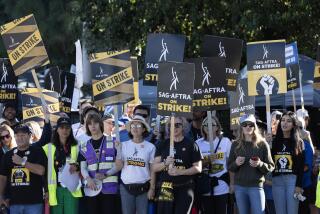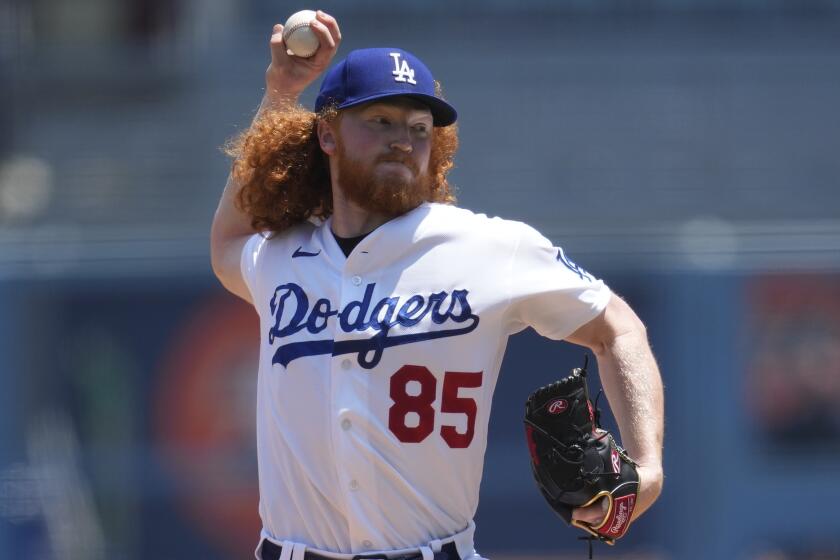Baseball Talks Hit a âBumpâ
Baseball labor talks stalled Wednesday over the contentious issue of a payroll tax, stirring concern that negotiations are entering a make-or-break phase with a strike deadline looming.
A day after saying he thought it was âpossible to make an agreement in the next several days,â Rob Manfred, baseballâs lead labor lawyer, acknowledged facing a familiar hurdle after meeting with the Major League Baseball Players Assn. for six hours in New York. Manfred declined to reveal the setback in a process he has repeatedly characterized optimistically, but union sources said the sides were at polar extremes after examining proposals for implementing the tax owners are demanding.
The unionâs executive council plans to focus on the status of that issue in a conference call Friday, determining whether management has softened its stance enough to postpone setting a strike date. However, there is growing concern among players that the bridge cannot be gapped in time, prompting them to prepare for a potential walkout on Aug. 30, Sept. 2 or Sept. 16.
Negotiations are scheduled to continue today as the sides work to avert baseballâs ninth work stoppage since 1972.
âOccasionally in this process, you have bumps in the road, and today probably would be a bump in the road,â Manfred said. âI said that I was cautiously optimistic that an agreement could be reached in the next few days. My overall view has not changed despite the fact that I recognize today was a bump in the road.â
Or maybe more than that.
Union head Don Fehr declined to discuss the shifting tone of talks. Fehr has at no point expressed a similar sense of optimism about negotiations that clearly took a negative turn after the core economic issue was put under a microscope.
Owners have proposed assessing a 50% tax on clubs with payrolls of more than $100 million, phasing in the full rate for highest-spending teams. The union tax threshold, sources said, is in the $139-million range, and the New York Yankees are the only club projected to surpass that total next season.
The union plan was met with disappointment by the other side of the table, especially considering managementâs insistence on having a viable mechanism to slow escalating player salaries in the next agreement. Owners, in effect, are seeking a legal method to promote spending restraint, trying to regain control lost in decades of previous collective bargaining without collusion.
The union views a payroll tax as a component of revenue sharing, another means of transferring money from high-revenue to low-revenue clubs, maintaining they work in conjunction only to redistribute revenue. The union is prepared to make further concessions in revenue sharing, but not if owners continue to push for a wide-reaching luxury tax, believing the combination would act as a salary cap.
âI donât believe that the difference,â Manfred said, âis an impediment to an agreement at this point.â
If proposals for revenue sharing and the payroll tax were combined, as the union would prefer, the sides would be $150 million apart, with owners at $400 million and the union at $250 million. In order to complete a deal, sources said the union might increase its figure to more than $300 million.
Owners also have been rebuffed in their attempts to implement a minimum $45-million payroll, which the union considers to be another restraint on salaries.
Although the union would seemingly support all 30 clubs having a salary floor, it opposes any mandates on spending. The fear is that owners would eventually seek a hard cap in future negotiations if players open the door on this issue, saying the benefit of a payroll floor would be outweighed by a ceiling on the high-revenue teams that drive the market.
âThe floor is the mechanism that we have proposed to ensure that revenue sharing dollars are put into improving the competitiveness of the game,â Manfred said. âThey have been philosophically opposed to the minimum club payroll, and have maintained that position.â
More to Read
Are you a true-blue fan?
Get our Dodgers Dugout newsletter for insights, news and much more.
You may occasionally receive promotional content from the Los Angeles Times.










